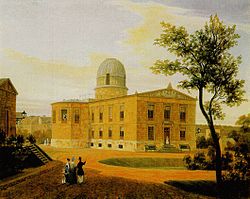 Global Information
Global InformationDiscovery of Neptune information


The planet Neptune was mathematically predicted before it was directly observed. With a prediction by Urbain Le Verrier, telescopic observations confirming the existence of a major planet were made on the night of September 23–24, 1846,[1] at the Berlin Observatory, by astronomer Johann Gottfried Galle (assisted by Heinrich Louis d'Arrest), working from Le Verrier's calculations. It was a sensational moment of 19th-century science, and dramatic confirmation of Newtonian gravitational theory. In François Arago's apt phrase, Le Verrier had discovered a planet "with the point of his pen".
In retrospect, after it was discovered, it turned out it had been observed many times before but not recognized, and there were others who made calculations about its location which did not lead to its observation. By 1846, the planet Uranus had completed nearly one full orbit since its discovery by William Herschel in 1781, and astronomers had detected a series of irregularities in its path that could not be entirely explained by Newton's law of universal gravitation. These irregularities could, however, be resolved if the gravity of a farther, unknown planet were disturbing its path around the Sun.
In 1845, astronomers Urbain Le Verrier in Paris and John Couch Adams in Cambridge separately began calculations to determine the nature and position of such a planet. Le Verrier's success also led to a tense international dispute over priority, because shortly after the discovery George Airy, at the time British Astronomer Royal, announced that Adams had also predicted the discovery of the planet.[2] Nevertheless, the Royal Society awarded Le Verrier the Copley medal in 1846 for his achievement, without mention of Adams.[3] The Royal Society, however, also awarded Adams the Copley medal in 1848.
The discovery of Neptune led to the discovery of its moon, Triton, by William Lassell just seventeen days later.[4]
- ^ Cite error: The named reference
chronologywas invoked but never defined (see the help page). - ^ Danjon, André (1946). "Le centenaire de la découverte de Neptune". Ciel et Terre. 62: 369. Bibcode:1946C&T....62..369D.
- ^ Cite error: The named reference
ODNBwas invoked but never defined (see the help page). - ^ Lassell, W. (1846). "Discovery of supposed ring and satellite of Neptune". Monthly Notices of the Royal Astronomical Society. 7 (9): 157. Bibcode:1846MNRAS...7..157L. doi:10.1093/mnras/7.9.154.